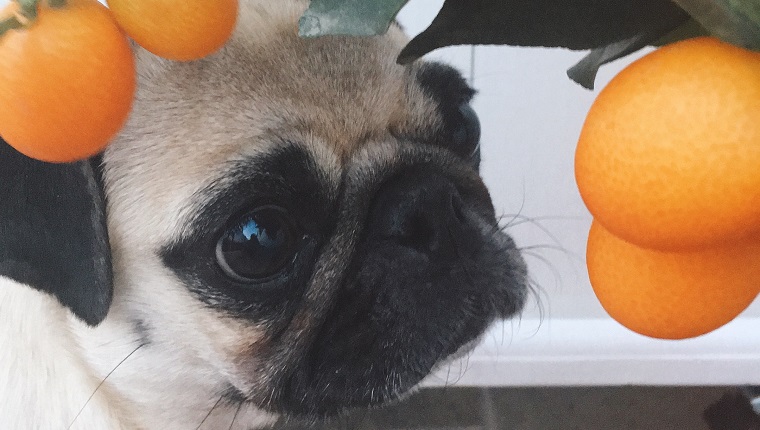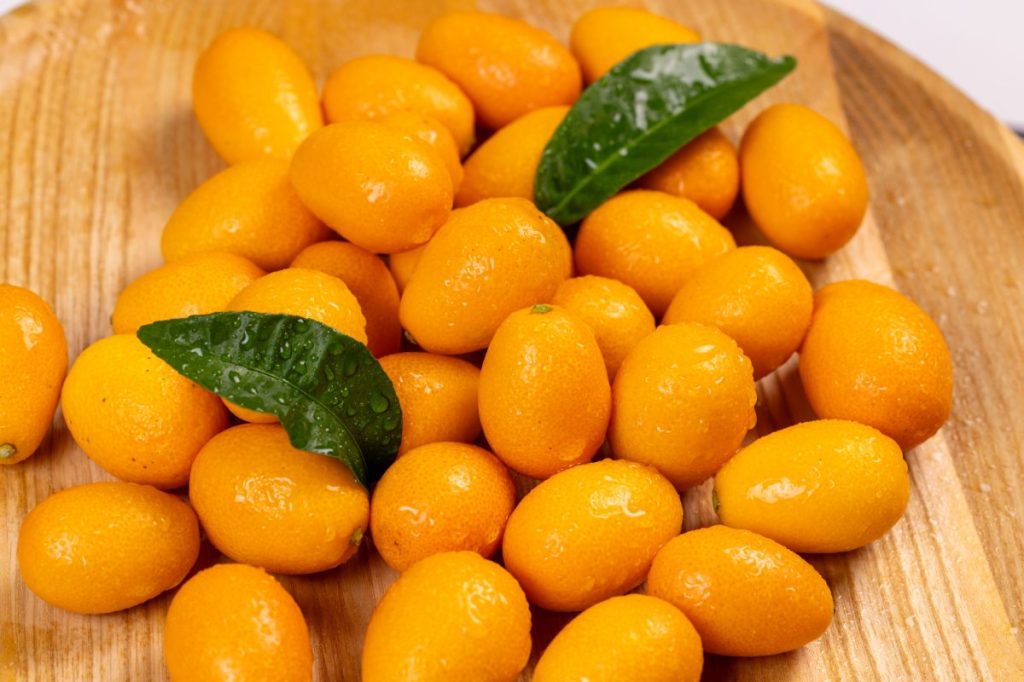Kumquats are a juicy, little, miniature oranges that you can eat whole, but can dogs eat kumquats? Are we able to share the joy and fun of these juice explosions with our dogs?
Fortunately, the short answer is yes; we absolutely can share kumquats with our dogs. Though, it should be said, not every dog will like the surprise pop of tart citrus. For those who do, though, this is a nutritious, sweet, and fun little treat.
Of course, if your dog has shown any intolerance to citrus, this one should definitely be avoided. You must have a discussion with your vet about fruits that would be good for your pup, including kumquats, before feeding them to your dog.
Your veterinarian knows the health of your pup and may even have a reason to steer clear of sugary fruits, altogether. Here’s what you should know about kumquats and dogs.
How Are Kumquats Safe For Dogs?
Kumquats, or the Golden Orange, are as safe for your dog as oranges are. They’re non-toxic and make for a juicy and exciting treat for our furry friends.
Just like oranges, kumquats are loaded with nutrition. It’s just packed into a much smaller form. Generally, kumquats only weigh about 20 grams each. They’re small and, once peeled, can be put into a human mouth whole; although, this isn’t advised for dogs, due to the seeds.
Even in that small form, though, kumquats contain vitamin A, vitamin B, vitamin E, magnesium, potassium, calcium, copper, iron, and zinc — quite a lot of nutrients and minerals for such a small fruit.
Additionally, they’re not terribly high in calories and are fairly moderate in sugar compared to other fruits, making them a possible candidate for dogs who need a lower sugar intake. This is something that should, of course, be confirmed by your veterinarian.
How Can I Safely Give Kumquats To My Dog?

Kumquats can be safely offered to your dog with simple preparation.
All you’ll need to do is remove the peel, and while the seeds are said to be edible, we don’t recommend risking it. Even if the seeds don’t contain the potent toxic cyanide properties of other fruits, they’re not good for digestion.
It’s also important to note that the peel contains a substantial amount of citrus oil, more so than other citrus fruits. This can cause an allergic reaction and is rough on a dog’s liver.
You should never allow your dog to consume the peel. If they do so accidentally, monitor them closely, and consider a call to the vet.
Outside of this, moderation is the only other requirement. While the sugar content may not be as high as other fruits, kumquats are loaded with magnesium. This mineral can have a laxative-like effect and put your dog through tremendous stomach upset.
If you stick to just one or two kumquats here and there per week, though, you can avoid this. But, of course, run it by your veterinarian for an approved amount and frequency.









